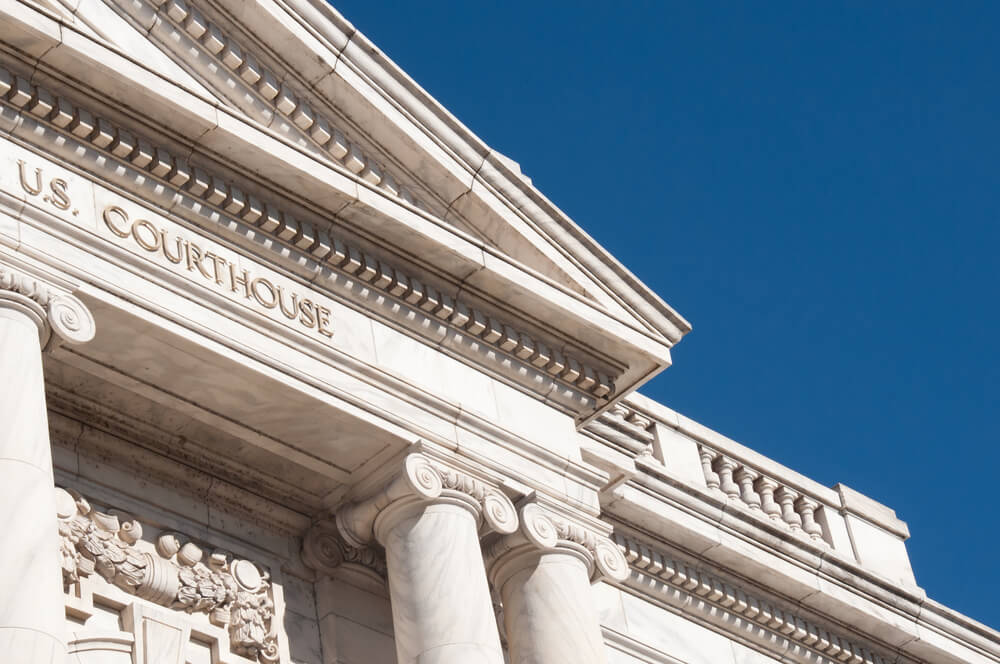A famous quote in the Art of War states that as “water shapes its course according to the nature of the ground over which it flows, the soldier works out his victory in relation to the foe whom he is facing.”
In much the same way, America’s enemies are constantly adapting, and they are always looking for novel ways to exert influence and gather intelligence within our systems. The United States must therefore be ready to respond.
The courtroom has emerged as a new front in this asymmetric battle where legal loopholes, frivolous lawsuits and judicial processes are exploited to undermine U.S. national interests, burden its institutions and achieve objectives that conventional warfare or diplomacy might not allow.
Cloaking foreign influence
A recent case involving California and ExxonMobil illustrates this point and underscores why this activity must be properly addressed.
At first glance, People of the State of California v. ExxonMobil appears to be yet another fight picked by a policymaker – in this case California’s Attorney General Rob Bonta – on a climate crusade against a major oil and gas company. Much like the many lawsuits that have been leveled against major American energy producers for their alleged role in causing “climate change,” the plaintiffs in this case have accused major energy companies of engaging in a decades-long campaign of deception that exacerbated a global plastics pollution crisis and have demanded significant damages.
Bankrupting the very companies that have helped advance America’s energy security would be bad enough, but upon closer inspection there are even more concerning dimensions to this case.
A countersuit from ExxonMobil has revealed details that were not previously known about the origins of this lawsuit; specifically that foreign interests — including Fortescue Metals Group, an Australian mining conglomerate, and a non-profit started by the company’s founder known as the Intergenerational Environment Justice Fund Ltd.(IEJF) — are directly involved in advancing this case.
The countersuit alleges that if Fortescue and IEJF had it their way, their involvement in the case would never have been made public, as IEJF did not want to be named as a plaintiff in the case. As a result, it continues, IEJF hired the law firm, Cotchet, Pitre & McCarthy to recruit third party advocates to help file the plastics lawsuit against ExxonMobil..
IEJF deliberately stayed behind the scenes while they were secretly bankrolling the litigation, and their participation really only came to light because their law firm was forced to register as a foreign agent due to what the Department of Justice deemed to be the “political nature” of the litigation.
Showcases vulnerabilities
The case showcases the vulnerabilities of the U.S. legal system. It demonstrates how foreign entities attempt to clandestinely manipulate the legal system to advance their own financial or geopolitical agendas under the guise of public interest litigation.
That manipulation risks creating a system in which powerful foreign actors, shielded by legal intermediaries, can engage in economic warfare against critical U.S. industries with little to no accountability.
This kind of foreign-backed litigation also represents a broader national security vulnerability. If adversarial nations or economic competitors recognize the ease with which they can leverage legal mechanisms to weaken American industries—whether in energy, technology, or manufacturing—such tactics will only become more prevalent.
In fact, a growing number of lawsuits in the U.S. are being secretly financed by foreign entities with clear economic or geopolitical motives. For example, Fortress Investment Group—which was recently acquired by Abu Dhabi’s Mubadala Investment Company—has been subpoenaed in connection with mass tort litigation against Johnson & Johnson, a critical source of medical supplies and pharmaceuticals in the United States. A Bloomberg Law report from last year, meanwhile, found that an investment firm founded by billionaires with ties to Vladimir Putin has been financing lawsuits in New York in an effort to evade international sanctions.
China employs the tactic
These are far from isolated incidents. A recent Government Accountability Office report found that many industry stakeholders – including half of companies in the critical tech sector – stated that funding of U.S. patent litigation from foreign entities such as China has become significant in recent years. This has spurred the Department of Justice to take action to examine “whether foreign entities are investing in U.S. patent litigation to gain proprietary information that would help their own industries,” a concerning development given that innovation is America’s foremost strategic asset.
In the end, the plastics case in California involves an actor located Australia, a valued ally. But the crux of the issue that needs to be addressed is that we cannot turn a blind eye when foreign countries are involved in legal proceedings and financing litigation. If we fail to act, America risks a future where hostile nations like China and Russia hold undue financial and legal influence over our courts, cripple or hold hostage crucial American industries, and ultimately delay justice for those who truly need it.
The United States must take this threat seriously now and implement stricter disclosure requirements, enforce foreign agent registration laws and remain vigilant against the exploitation of its legal system as a tool for asymmetric warfare. Ultimately, practices like these must be stopped before they further compromise our national security.







